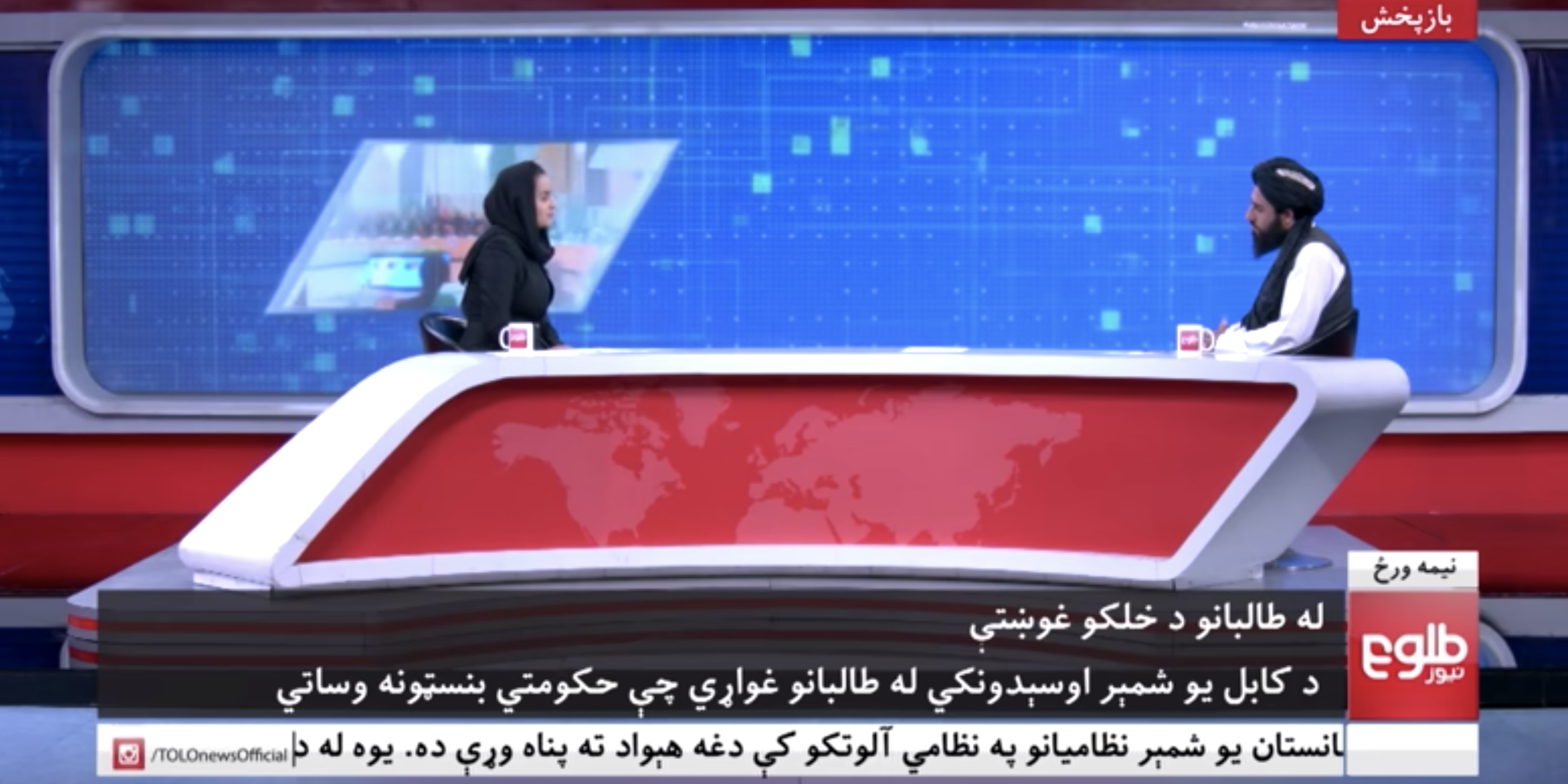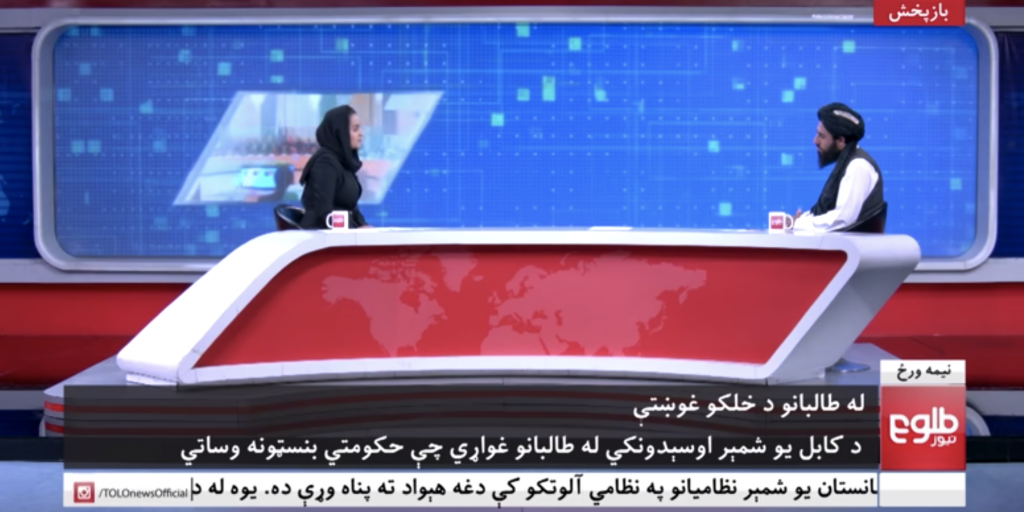
Screenshot/TOLO News
- A top Taliban official sat down with a female Afghan TV reporter for a live, in-person interview on Tuesday.
- The highest ranks of Taliban leadership are attempting to project a more moderate image.
- But recent murders of female Afghan reporters and years of attacks undermine this message.
- See more stories on Insider's business page.
A top Taliban official sat down with a female Afghan TV reporter for a live, in-person interview on Tuesday as part of the militant group's effort to project a more moderate image to the world as it asserts control over Afghanistan.
The interview between TOLO News host Beheshta Arghand and senior Taliban representative Mawlawi Abdulhaq Hemad was the first broadcast conducted by a woman reporter since the Taliban's takeover. Arghand asked Hemad about the Taliban's home searches in Kabul and the general situation on the ground, The New York Times reported.
-Miraqa Popal (@MiraqaPopal) August 17, 2021
"The entire world now recognizes that the Taliban are the real rulers of the country," Hemad told Arghand during their 17-minute interview.
"I am still astonished that people are afraid of Taliban," he added.
Other female Afghan reporters for TOLO News, an independent news channel, delivered reports from the streets of Kabul following the Taliban's takeover.
"Our brave female journalists out and about in Kabul this morning," Saad Mohseni, the head of TOLO's parent company, said in a Tuesday tweet.
-TOLOnews (@TOLOnews) August 17, 2021
But it remains unclear how indicative this will be of the Taliban's tolerance for female reporters. Millions of Afghan women fear for their lives under the Taliban's new regime and many Afghan female journalists have reportedly been forced into hiding, are fleeing their homes, and destroying evidence of their work.
Women's rights were severely restricted during the Taliban's rule of Afghanistan from 1996 to 2001. They were banned from studying and working, kept hidden in their homes, and violently assaulted if they were seen in public with their faces uncovered.
A Taliban spokesman said during a Tuesday press conference that the group will protect the rights of women and girls "within the limits of Islam," according to multiple news outlets.
Human rights organizations and the United Nations have reported extensive violations of women's and girls' rights, including female journalists, by Taliban officials. UN Secretary General António Guterres said he was "particularly concerned by accounts of mounting human rights violations against the women and girls of Afghanistan" in recent days.
On a single day in March, three young female journalists at a local Kabul TV station were assassinated by gunmen in the streets of Afghanistan's capital city.
A Human Rights Watch report published in April found that female journalists have recently faced particularly intense threats, intimidation, and even violence from Taliban officials across the country and in Kabul. Violent attacks caused "several prominent women journalists to give up their profession or leave Afghanistan altogether," the report said.
"Female reporters may be targeted not only for issues they cover but also for challenging perceived social norms prohibiting women from being in a public role and working outside the home," according to the report.
Taliban leaders have dramatically restricted freedom of speech and the media in parts of Afghanistan they've controlled in recent years, despite top leaders denying such activity.
"It's not enough for Taliban officials in Doha to issue blanket denials that they're targeting journalists when Taliban forces on the ground continue to intimidate, harass, and attack reporters for doing their jobs," Patricia Gossman, HRW's associate Asia director, said in a statement.

